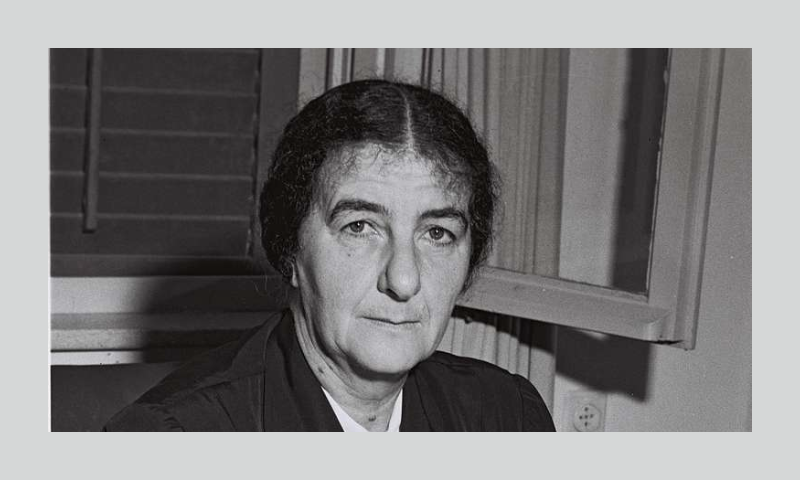Sonja Anderson
The Smithsonian, Aug. 24, 2023
“She could be vicious. She was like an animal, a lioness … crouching, ready to kill anyone who hurt her people, very protective. … She could be tough, very, very tough. She could wither you with just a look.”
Before Golda Meir accepted the nomination for prime minister of Israel on March 7, 1969, she spent a sleepless night smoking cigarettes, drinking coffee and consulting her children on whether to take the job. At age 70, she had plenty to keep her occupied besides her career. She wanted to spend time with her children and grandchildren, and she had serious health issues to address, including shingles and lymphoma. But she also carried a fierce loyalty to the nation she’d helped form. Feeling she must lead it, Meir accepted the nomination, becoming Israel’s first—and to date only—woman prime minister.
Meir held that position until 1974, earning the praise and admiration of her people in the first years of her term and their scorn in the final ones. In October 1973, a coalition of Arab nations attacked Israel, killing 2,656 Israeli soldiers and wounding thousands more. Victory came, but Israelis could neither forgive nor forget the cost of the Yom Kippur War, as the conflict would later be known. They blamed Meir, complicating her legacy in the country she led. Outside of Israel, the politician’s xenophobic comments, chief among them her 1969 claim that there was “no such thing as Palestinians,” also clouded her name.
Forty-five years after Meir’s death in 1978 at age 80, a new film offers a sympathetic glimpse at her time in power, with a particular focus on the Yom Kippur War. Directed by Guy Nattiv and written by Nicholas Martin, Golda is an elegy for the trailblazing female politician, Nattiv tells Smithsonian magazine.
… [To read the full article, click here]


